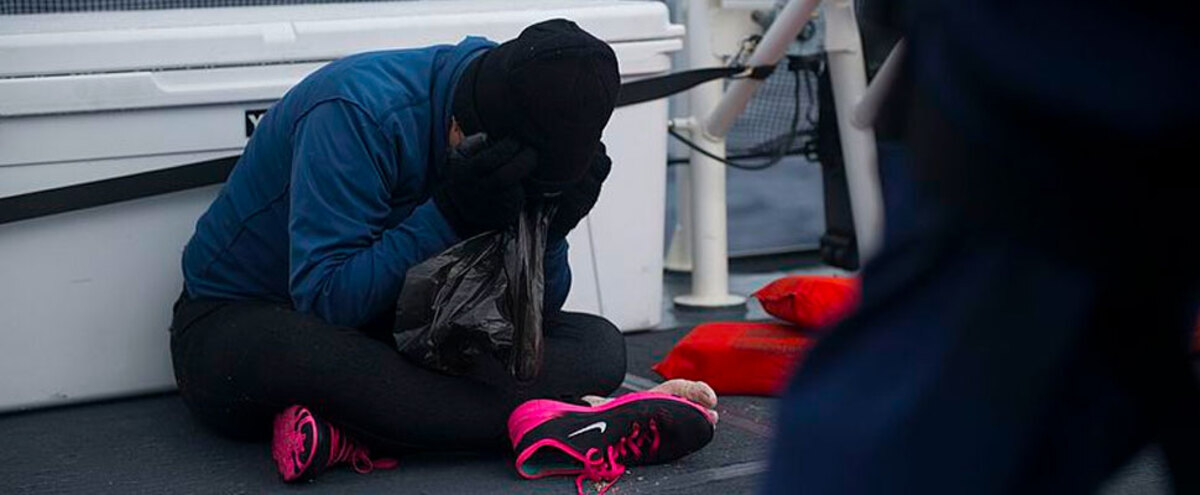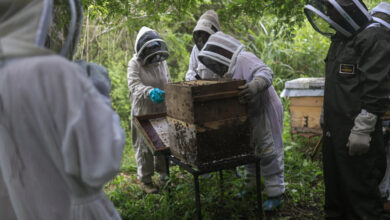Migrant Women Are More Vulnerable Than Men
Starting in the 1980s, the situation changed and many of them dared to travel alone to find well-being for themselves and their loved ones.

The Woman Post | María Consuelo Caicedo
Listen to this article
Read more content like this at: thewomanpost.com
The migrant who leaves her native place by force includes in her travel suitcase the illusion of living far from danger, poverty, exploitation, hunger, lack of employment and opportunities, and war… When leaving her earth carries on her shoulders the fear that uncertainty gives, an indescribable emptiness in the stomach, and a question written in capital letters: AM I DOING THE RIGHT THING?
Today millions of men and women who have abandoned the places of origin where they were born to experience the so-called Ulises Syndrome, which was described in 2002 by the Spanish psychiatrist Joseba Achotegui as a duel that implies the imminence of the fight that the immigrant You must pay to get a solution to basic needs such as food or housing. This is how the specialist explains it in his work entitled Extreme migratory mourning: the syndrome of the immigrant with chronic and multiple stress:
- Many times, these people are undernourished since they send almost all the money they have to their relatives. The result is that they tend to eat low-quality food. It is not uncommon to find cases of housing in which many immigrants are crowded at abusive prices or simply live on the street. They are afraid of the physical dangers related to the migratory journey, mafias, prostitution networks, and arrest and expulsion.
The fight for the return
Odysseus, one of the best-known Greek heroes, was described by Homer in The Odyssey as an adventurous traveler who was away from his homeland of Ithaca for 20 years. He found himself in his way treacherous winds, Cyclops, nymphs, and sirens who wanted to keep him out of his home. He was a migrant desperate to return like many men and women who, far from being the protagonists of a great story, fight against adversity and dream of returning to the comfort of what is known. They are not heroes or heroines but flesh and blood people who have left loved ones behind, their homes, their customs, and their culture.
In general, migrant men and women feel alone, many are victims of extreme deprivation and experience permanent fear, which leads them, according to Achotegui, to chronic and multiple stress, that is, the Ulises Syndrome. They tend to become depressed and are often prey to sadness and a feeling of helplessness. They cry and feel guilty for having left their land or for not meeting the expectations of those who count on them. They are nervous, they become irritable and some suffer from insomnia. Many manage to build an acceptable (and even full) life beyond their borders, but most maintain the hope of returning, like Ulysses.
They are counted by millions
The latest data from UN MIGRATION for the year 2022, which is already ending, indicates that the number of international migrants moving around the world reaches 281 million, of whom 48% are women and girls.
The international organization points out that “migration to North America is a fundamental feature of the Latin American and Caribbean region. In 2020, more than 25 million Latino immigrants resided in North America”.
Among the countries that generate the most migrants to Latin American destinations or the United States, is Venezuela, which, according to the UN, “constitutes one of the largest displacement and migration crises in the world. As of June 2021, some 5.6 million Venezuelans had left their homeland and approximately 85% of them (around 4.6 million) had moved to another country in Latin America and the Caribbean. Among the main destinations for Venezuelan refugees and migrants within the region are Colombia, Peru, Chile, Ecuador, and Brazil”.
Women are more vulnerable
For the women and girls who are forced to leave their countries (millions of them with insufficient academic preparation or knowledge of the social, political, and legal conditions of the countries to which they arrive) the matter is not easy at all. A United Nations study that analyzes the issue concludes that “many are affected by discrimination based on gender, abuses, and violations of their rights during migration. A limited understanding of the realities faced by migrant women and girls affects the ability of States to formulate and implement gender-sensitive migration laws, policies, and programs, and to ensure that women and girls can enjoy their human rights during their migration.
According to the Spanish newspaper El País, women and girls from low economic conditions who break their borders to find a better life are often victims of gender violence, especially since in the 1980s many of them dared to travel alone with the hope of finding domestic work or work as waitresses, office cleaners or child or elderly caretakers.
These young women often face the possibility of being deceived by people who engage in white slavery, having to trade sex for food or shelter, or engaging in prostitution to survive.
Given the increase in cases in Latin America, UNHCR (UN Agency for refugees based in several countries around the world) and the Inter-American Development Bank (IDB) have implemented strategies to monitor the treatment of migrants on this side of the world. The information to know the conditions of protection is at www.acnur.org




